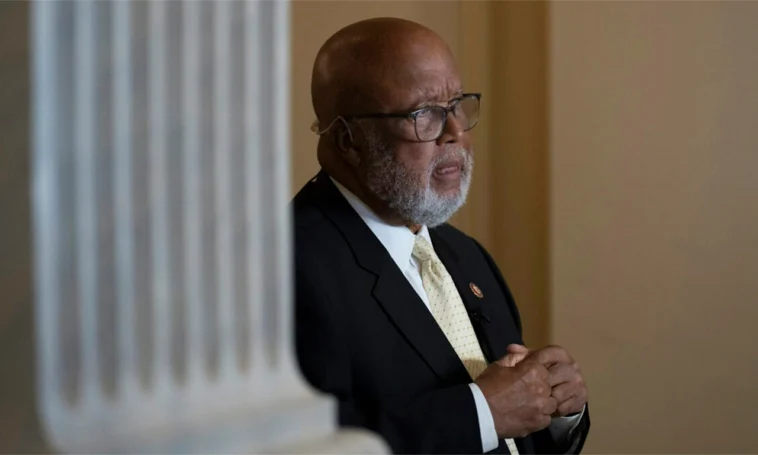Ex-Chair of January 6 Panel Introduces Legislation to End Trump’s Secret Service Protection. Rep. Bennie Thompson (D-MS), the former chair of the January 6 Committee, has introduced legislation that could potentially disqualify former President Donald Trump from receiving Secret Service protection if he is convicted of a felony.
The bill, which has several Democratic co-sponsors, aims to update the law to ensure that individuals who are sentenced to prison do not receive special treatment due to their protective status.
Thompson’s proposal comes as Trump faces multiple criminal cases related to election matters and his handling of classified documents while out of office. Trump has pleaded not guilty to all counts and claims that prosecutors and others are waging a “witch hunt” against him to boost his 2024 rival, President Joe Biden.
The bill, dubbed the “DISGRACED Former Protectees Act,” would amend a section of the U.S. Code to terminate Secret Service protection for individuals convicted of a federal or state offense punishable by at least one year of imprisonment. While the bill does not mention Trump by name, Thompson’s “fact sheet” explicitly states that the former president would be affected if the proposal passes and he is convicted of a felony.
“Unfortunately, current law doesn’t anticipate how Secret Service protection would impact the felony prison sentence of a protectee — even a former President. It is regrettable that it has come to this, but this previously unthought-of scenario could become our reality,” Thompson said.
Thompson’s move is seen as a response to the unprecedented situation of a former president facing criminal charges while still receiving Secret Service protection. The Democrat argued that current law does not account for this scenario and that it is necessary to update the law to ensure that protective status does not translate into special treatment.
However, the bill’s chances of passing are slim, as Republicans control the House and largely support Trump. The former president has been vocal in his criticism of Thompson and the January 6 Committee, which he has dubbed the “Unselect Committee of political hacks.” In March, Trump even suggested that former Rep. Liz Cheney (R-WY) and other committee members should be jailed.
Thompson’s leadership of the January 6 Committee resulted in the recommendation of criminal charges against Trump for his role in the U.S. Capitol breach on January 6, 2021. The committee’s findings and recommendations have been controversial, with Trump and his allies dismissing the investigation as a politically motivated attack.
The introduction of the “DISGRACED Former Protectees Act” has sparked debate about the role of Secret Service protection and the treatment of former presidents facing criminal charges. While some argue that the bill is a necessary update to the law, others see it as a politically motivated attempt to target Trump.
As the bill makes its way through Congress, it will likely face significant opposition from Republicans and may not pass. However, the proposal has brought attention to the unique situation of a former president facing criminal charges and the need for clarity on how Secret Service protection should be handled in such cases.
The issue of Secret Service protection for former presidents has historically been a non-partisan matter, with the goal of ensuring the safety and security of individuals who have served in the nation’s highest office. However, the unprecedented circumstances surrounding Trump’s criminal cases have raised questions about whether this protection should be extended to individuals who have been convicted of serious crimes.
Thompson’s bill has sparked a wider conversation about the need for accountability and the rule of law, even for former presidents. While the bill’s fate is uncertain, it has highlighted the importance of ensuring that the law applies equally to all individuals, regardless of their position or status.
In the end, the “DISGRACED Former Protectees Act” may not become law, but it has already served an important purpose by sparking a necessary conversation about the role of Secret Service protection and the treatment of former presidents facing criminal charges. As the country navigates this uncharted territory, it is essential to prioritize accountability, the rule of law, and the safety and security of all individuals, including former presidents.



